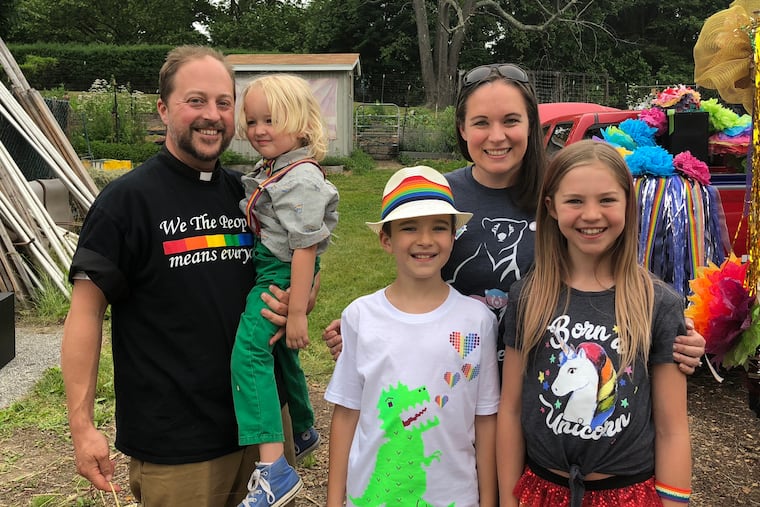After N.J. law, my birth certificate finally matches who I am | Perspective
I’m twelve years old now. I go to school, I dance, I play field hockey. Most days, I don’t even think about being transgender.

I bet most kids my age don’t think much about their birth certificates. To be honest, I didn’t either. My mom keeps it locked in a box somewhere, and it only comes out when we need it for stuff like registering me for public school or getting on an airplane.
That’s when I would see the label: male. That little piece of paper said something about me that simply wasn’t true. It said I was a boy.
I’m transgender. This means when I was born everyone thought I was boy. But I know myself to be a girl. It took some time for me and my parents to really understand what was going on and get the information we needed to be able to explain it to people around me.
When I was 8 years old, I was able to socially transition. I changed my name and my pronouns so I could live as myself in the world. Being transgender isn’t about how I act or the clothes I wear. It’s who I am, who I’ve been all along. A year after I transitioned, my parents and I went to court to legally change my name to Rebekah. My favorite part was getting to bang the gavel and order my parents to take me to lunch when it was over.
I’m 12 years old now. I go to school, I dance, I play field hockey. Most days, I don’t even think about being transgender. I’m busy worrying about getting my homework done, what my mom packed me for lunch, and if I’ll get to see my friends this weekend. My family, friends, and community have supported and affirmed me. I know how lucky that makes me. I know that’s not true for a lot of trans youth.
I think that’s why it always felt so weird when I’d see my birth certificate. It took me by surprise every time. I’m so used to everyone in my life understanding that I’m Rebekah, a girl, but this important legal document still said I was a boy.
On February 1, that all changed. A law went into effect in New Jersey making it so kids like me could change the gender on their birth certificate without things like surgery, which kids certainly aren’t having and many adults don’t either. We went online, printed out the form, filled it out, and put it an envelope with a check for $6 and my current birth certificate. It felt like no big deal walking down the driveway and putting it in the mailbox, but it’s also a huge deal. My mom took pictures. She always takes pictures. Now, we wait.
In a few weeks, a new certificate will come in the mail that matches exactly who I am, that says female. The law that made this all possible is the Babs Siperstein Law. Babs Siperstein was an amazing trans activist who fought relentlessly for trans equality in New Jersey and across the country. It’s because of her, her visibility and advocacy, that I can live the life I do. She died just days after the law went into effect. I am truly grateful for her work and her life. She changed the world for kids like me.
Before I didn’t think about my birth certificate until I was reminded that it was a problem. Now, I have the freedom not to think about it all. I won’t be caught off guard anymore by a document trying to tell me I’m someone I’m not. I don’t have to worry about the ways having identification that doesn’t match who I am could impact me down the road.
New Jersey has these wonderful laws and protections thanks to advocates like Babs Siperstein and organizations like Garden State Equality, but I can’t take those people everywhere with me. My birth certificate gives me a mark of affirmation from the government that says: “We see you; this is who you are.”
Now, no matter where my family goes on vacation or where I might end up for college, I can take a little bit of New Jersey’s protection with me. That makes me feel really good.
Rebekah Bruesehoff is a student and activist.